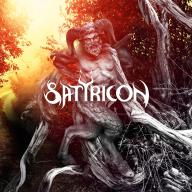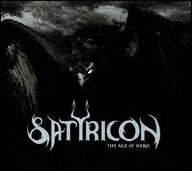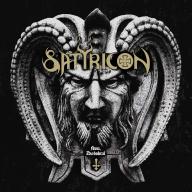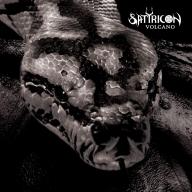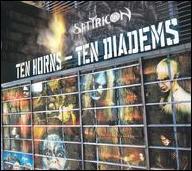Initializing in 1990 under the moniker Eczema, the band underwent a series of lineup changes before settling on the Satyricon handle the following year. Led by vocalist, guitarist, bassist, and keyboardist Satyr (Sigurd Wongraven) and drummer Frost (Kjetil-Vidar Haraldstad), Satyricon issued their uncompromisingly bleak debut album, Dark Medieval Times, in 1994, with the equally savage Shadowthrone arriving one year later. Released in 1997, Nemesis Divina was the duo's first album to see release in the U.S.; it was followed by an EP of primarily alternate versions (Megiddo) and one of new material (1999's Intermezzo II). The full-length Rebel Extravaganza appeared soon after, pushing their sound even farther into the realm of synth-flavored gothic black metal. The compilation Ten Horns: Ten Diadems appeared in 2002 to celebrate Satyricon's tenth anniversary together before marking their jump to the majors with their Capitol debut, Volcano. The band's most commercially successful effort to date, Volcano, took home the Norwegian Grammy for Best Metal Album.
Satyricon's penchant for breaking out of confining stylistic boundaries continued on 2006's Now, Diabolical, and 2008's Age of Nero, which further expanded on the group's post-rock, goth, and industrial metal predilections. Satyricon's eponymous 2013 eighth studio album was their first to top the official Norwegian Albums Chart, while 2017's wide-ranging Deep Calleth Upon Deep saw chart success in several countries and included contributions from jazz saxophonist Håkon Kornstad and members of the Oslo Philharmonic. In 2022, the band bridged the gap between black metal and the art world with the release of Satyricon Munch, a genre-bending 56-minute piece written for the Edvard Munch art exhibition on display at the MUNCH museum in Oslo. ~ James Christopher Monger, Rovi



